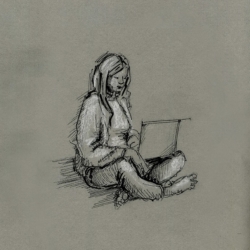 Those that attended the final Office Developments convention will recall that common contributor Paige Hodsman (Saint-Gobain Ecophon) and the organisers are conducting analysis into why some ladies or males aren’t at all times heard of their office. They’re now reaching out to extra individuals to finish a ten to fifteen minute survey to tell this pertinent analysis. You may participate by full the survey right here earlier than the twenty fourth of December. The survey additionally means that you can obtain a replica of the findings or attend a free seminar as soon as the analysis has been printed.
Those that attended the final Office Developments convention will recall that common contributor Paige Hodsman (Saint-Gobain Ecophon) and the organisers are conducting analysis into why some ladies or males aren’t at all times heard of their office. They’re now reaching out to extra individuals to finish a ten to fifteen minute survey to tell this pertinent analysis. You may participate by full the survey right here earlier than the twenty fourth of December. The survey additionally means that you can obtain a replica of the findings or attend a free seminar as soon as the analysis has been printed.
Paige and Nigel Oseland of Office Developments printed an in depth assessment of the literature on the topic right here. The findings of the assessment are summarised beneath.
Abstract
Relationship again to historical Greece, there’s a lengthy historical past of public talking and debate being a
masculine self-discipline with ladies being hushed. Consequently, the unfairness in the direction of feminine
voice and speech is deeply ingrained via language and tradition. Extra just lately, numerous
printed analysis papers and widespread press articles confirm that girls battle to be heard in
the office, significantly in conferences and within the boardroom.
Our unique remit was to know why ladies aren’t heard within the office which raised
two fast questions. Firstly, by ladies we centered on conventional male-female variations
as explored in legacy research slightly than broader gender research. Secondly, what is supposed by
being heard, is it bodily being heard or just not being acknowledged or revered?
Moreover, there are various different confounding elements, past the scope of this literature
assessment, that impact ladies being heard within the office and wish additional exploration, together with
the affect of gender, race, tradition, socioeconomic standing, persona and digital conferences to
identify a number of.
This literature assessment highlights the legacy proof displaying that girls are sometimes much less heard in
the office in comparison with males. It concludes that girls aren’t heard as a result of:
i) ladies aren’t bodily heard, because of the traits of a ladies’s voice and whether or not
males can hear it,
ii) ladies are bodily heard however not listened to, referring to ladies being interrupted or
talked over, and males speaking extra in poorly managed conferences,
iii) ladies are bodily heard and listened to however then not understood, which considerations
communication types and variations in use and understanding of language between males
and females, and
iv) ladies are bodily heard, listened to and understood however then not acknowledged or their
views acted upon, which is the broader challenge of ladies being ignored within the office.
Work and the office had modified considerably because the Covid-19 pandemic, and far of
the reviewed analysis was carried out earlier than the pandemic. The literature assessment recognized the
want for additional analysis to know if ladies are higher heard within the office and if
attitudes have modified.
Nonetheless, the literature assessment has additionally highlighted some fundamental technique of enhancing
communication between males and feminine within the office. The steerage might be developed
additional following additional proposed analysis.



